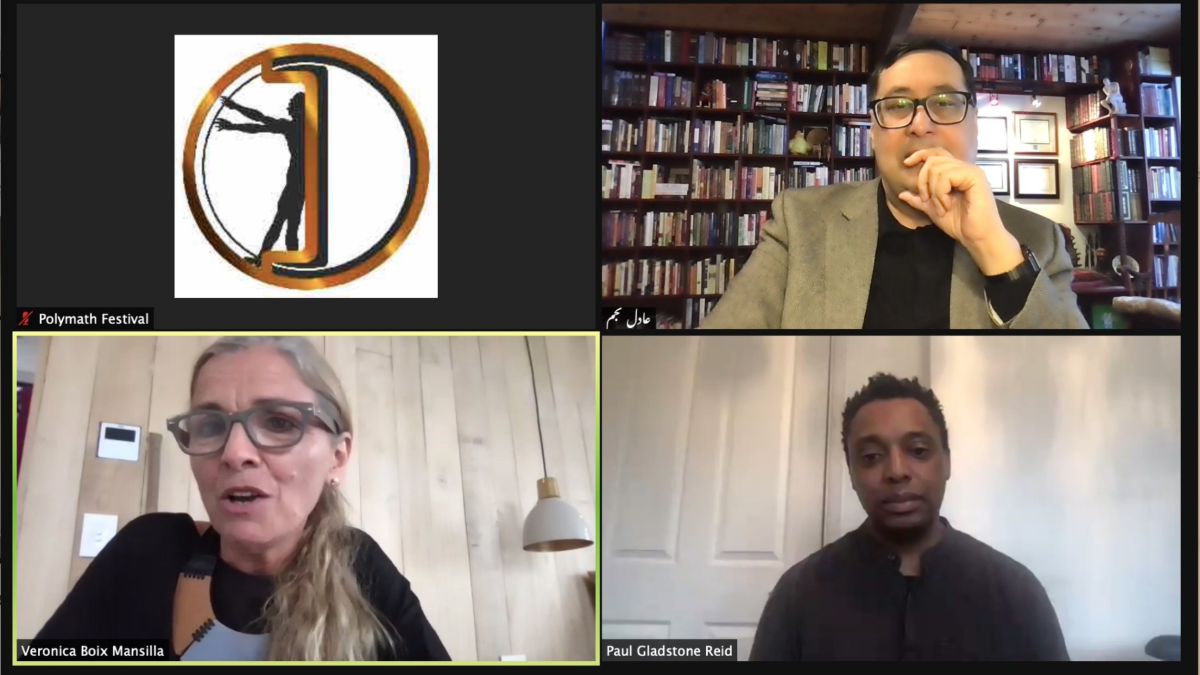Najam Speaks at 2021 Polymath Festival

On Monday, February 8, 2021, Adil Najam, Dean of the Frederick S. Pardee School of Global Studies at Boston University, spoke at the DaVinchi Network’s 2021 Polymath Festival during a panel titled “Interdisciplinary Approaches to Global Leadership.” The virtual festival is the world’s first major festival dedicated to celebrating many-sided human potential and exploring interdisciplinary solutions to complex world problems.
The conversation also featured Professor Veronica Boix Mansilla, Principal Investigator at Harvard University’s Project Zero, and Composer and Social Entrepreneur Paul Gladstone Reid. During the session, Najam discussed the importance of interdisciplinarity in global leadership. There appears to be an increasing consensus amongst leading futurists about the need for cognitively flexible polymaths as leaders, and this panel explored how interdisciplinarity is essential for leaders faced with complex challenges. Najam talked about the Pardee School as an example of an institution whose sole purpose is teaching interdisciplinary studies in global studies, calling it an “experiment in leadership, both global and interdisciplinary.”
Najam went on to talk about the great issues of our time, which have three common characteristics: they’re global, interdisciplinary, and long term. He stressed that interdisciplinarity itself is a relatively new word – it flows out of the creation of multiple disciplines – and the utility of narrow silos is quickly disappearing.
A trailer for the Polymath Festival can be viewed below.
Adil Najam is a global public policy expert who also served as the Vice Chancellor of the Lahore University of Management Sciences, Lahore, Pakistan. He is the Inaugural Dean of the Frederick S. Pardee School of Global Studies at Boston University and was the former Vice Chancellor of the Lahore University of Management Sciences (LUMS). His research focuses on issues of global public policy, especially those related to global climate change, South Asia, Muslim countries, environment and development, and human development. Read more about Professor Najam on his faculty profile.